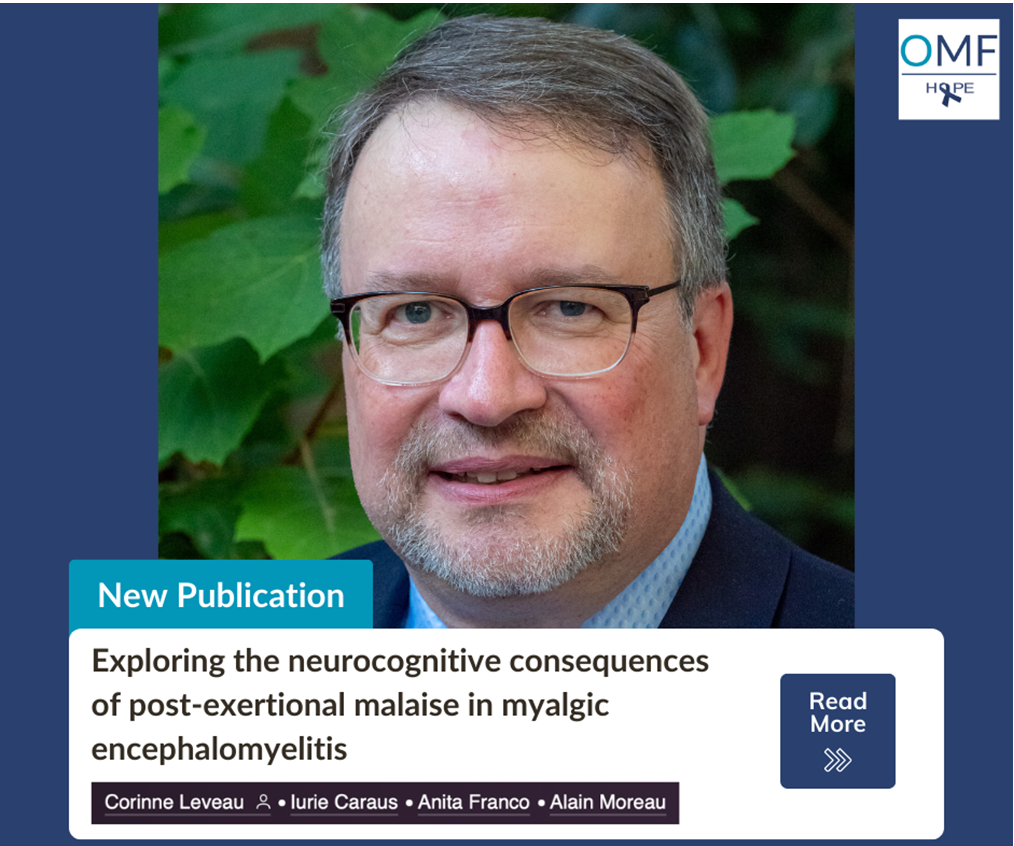Open Medicine Foundation Canada (OMFCA) is thrilled to share a new publication from Alain Moreau, PhD & colleagues: “Exploring the neurocognitive consequences of post-exertional malaise in myalgic encephalomyelitis.”
This study shows the impact of post-exertional malaise (PEM) on the disturbance of cognition in the context of myalgic encephalomyelitis/chronic fatigue syndrome (ME/CFS), as well as the variability of cognitive domains affected in people with ME/CFS.
Click here to read the full publication!
Research Summary: From the Desk of Alain Moreau, PhD, Director of the OMF ME/CFS Collaborative Research Center at the University of Montreal & Corinne Leveau, MSc, Lead Author & PhD student at the OMF ME/CFS Collaborative Research Center at the University of Montreal:
“In this talk, I discussed the effects of post-exertional malaise (PEM) on people with myalgic encephalomyelitis/chronic fatigue syndrome (ME/CFS). Our team developed a standardized test lasting 90 minutes to induce PEM in ME/CFS patients using a mechanical arm stimulation with an inflatable cuff. We included both people with ME/CFS and sedentary healthy individuals in our study. Both groups had blood drawn and underwent cognitive testing before and after the PEM test.
Our initial findings indicate that ME/CFS participants experienced cognitive impairment after the PEM test, although a significant variation in individual responses was observed. This prompted us to divide the participants into three subgroups based on their cognitive responses.
These subgroups align with specific microRNAs (miRNAs), which are small molecules that regulate genes. Interestingly, these same miRNAs are linked to other neurological disorders, suggesting their potential role in cognitive function. Our future research will involve looking for more miRNAs and other molecules related to various aspects of cognition (like attention, memory, and executive function) in the context of ME/CFS. These results will contribute to a better understanding of the disease, particularly its impact on brain fog and other types of cognitive impairment.”
Help support important research initiatives like this!
Your donation of any amount advances our mission to end ME/CFS, Long COVID, and related diseases.
